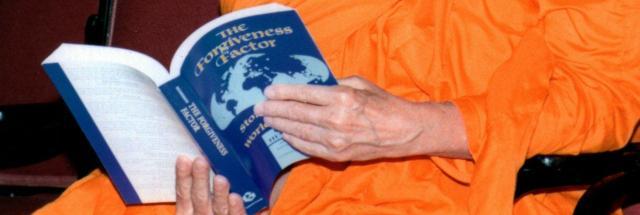Foreword by Sir Martin Gilbert
I am honoured to be asked to write this foreword to Michael Henderson's book. He and I are among several thousand British children and youngsters who were evacuated to Canada and the United States in 1940.
Millions of children suffered cruelly during the Second World War. More than a million Jewish children were murdered during the Holocaust. A total of 7,736 British children - whom we had left behind, as it were, to face the music - were killed during the relentless German aerial blitz over the British Isles .
Our tribulations in crossing the Atlantic and being taken in by other children's parents were very low down indeed on the scale of suffering. Of the twenty-eight ships in my convoy, eleven were sunk, but all four ships with children on board got through. Seventy-seven children were drowned when one of the evacuee ships, the City of Benares , was sunk: the only child victims of the 1940 sea evacuation, but their deaths brought an end to the evacuation scheme.
The British evacuees were especially fortunate. Many of us, Michael and I included, found the people of the United States (in his case) and Canada (in mine) both welcoming and supportive. We were far from home, and yet, in the main, made to feel at home. We were educated in a far off land, acquired a strange accent (rapidly lost on return), and learned a great deal about a world that would never otherwise have crossed our ken. Links of Anglo-American and Anglo-Canadian friendship were formed in those days that have lasted to this day, more than sixty years later.
I was one of 727 children who were brought back to Britain in April 1944, in time for D-day and the flying bombs. Michael was sent back, more sensibly, a year later, in time to witness the surrender of a German submarine. On my return I was introduced to my mother with the words, “This is your mother,” and I replied (I was just seven years old): “How do I know she is my mother?” She was a stranger in my eyes. Similar in intensity are the many vignettes that Michael Henderson presents, not only from his story but from many others that he has assembled.
My passport for the return, which I still have as a precious possession, states that it is “valid duration war”. No one knew in 1940 how long that duration would be, or indeed if the British would survive the bombing blitz and expected German invasion. This book is the story of that duration. It will bring back vivid images to the minds of all those who were part of the evacuation, memories that hark back now to an age that is long gone, to manners and morals that seem antique today, to simplicities and certainties that no longer exist.
For those who were not part of the saga Michael Henderson so brilliantly recounts, there will be myriad surprises, affectionate vignettes, warm tributes, amid the difficulties and uncertainties of exile.
The memories of individuals can have an unreal, egocentric aspect that does no service to history, only to individual vanity. Michael Henderson avoids this pitfall, producing instead a vivid portrait of the events, moods and atmosphere of a fast-moving, fearful and inspiring era.
One warning to readers of this book. It is a true history of a traumatic period, and there were several occasion when in spite of myself - I found tears in my eyes. As a little boy, not then four years old, I sang bravely and strongly the song “There'll always be an England ...”, and forty years later chose it as my first record on Roy Plomley's Desert Island Discs radio programme, and now, sixty-four years later, cried involuntarily as I read its words in this magnificent volume.
Sir Martin Gilbert

